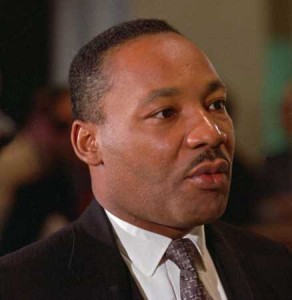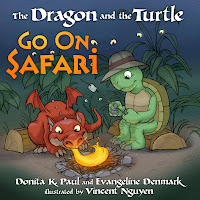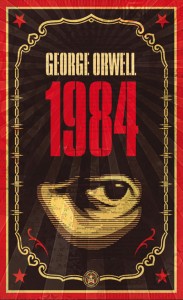 It is time for a FIRST Wild Card Tour book review! If you wish to join the FIRST blog alliance, just click the button. We are a group of reviewers who tour Christian books. A Wild Card post includes a brief bio of the author and a full chapter from each book toured. The reason it is called a FIRST Wild Card Tour is that you never know if the book will be fiction, non~fiction, for young, or for old…or for somewhere in between! Enjoy your free peek into the book!
It is time for a FIRST Wild Card Tour book review! If you wish to join the FIRST blog alliance, just click the button. We are a group of reviewers who tour Christian books. A Wild Card post includes a brief bio of the author and a full chapter from each book toured. The reason it is called a FIRST Wild Card Tour is that you never know if the book will be fiction, non~fiction, for young, or for old…or for somewhere in between! Enjoy your free peek into the book!
You never know when I might play a wild card on you!
Today’s Wild Card author is:
and the book:
Unexpected Love
Realms (January 4, 2011)
***Special thanks to Anna Coelho Silva | Publicity Coordinator, Book Group | Strang Communications for sending me a review copy.***
ABOUT THE AUTHOR:
 In addition to writing, Andrea Kuhn Boeshaar speaks at writers’ conferences and for women’s groups. She has taught workshops at conferences such as: Write-To-Publish American Christian Fiction Writers (ACFW), Oregon Christian Writers Conference, Mount Hermon Writers Conference, and many other writers’ conferences. Andrea is also co-founder of the American Christian Fiction Writers (ACFW) organization. For many years she served on the advisory board and was also CEO of the ACFW.
In addition to writing, Andrea Kuhn Boeshaar speaks at writers’ conferences and for women’s groups. She has taught workshops at conferences such as: Write-To-Publish American Christian Fiction Writers (ACFW), Oregon Christian Writers Conference, Mount Hermon Writers Conference, and many other writers’ conferences. Andrea is also co-founder of the American Christian Fiction Writers (ACFW) organization. For many years she served on the advisory board and was also CEO of the ACFW.
Visit the author’s website.
Product Details:
List Price: $12.99
Paperback: 304 pages
Publisher: Realms (January 4, 2011)
Language: English
ISBN-10: 1616381922
ISBN-13: 978-1616381929
ISLAND BREEZES
I’ve been hanging on since I finished Uncertain Heart. There was a teaser at the end of that book that grabbed me and wouldn’t let go. This book was all I hoped it would be and more.
This book starts with mysteries and adds more until you think you’re going to fly apart if someone doesn’t start figuring things out. Some of the mysteries I could guess, but oh, my. There were some surprises as well.
We’re starting here with a blind man and his nurse who wants him to remain blind. I thought a nurse was supposed to want patients healed. Why not this one? You’ll just have to read the book to see why.
AND NOW…THE FIRST CHAPTER:

Chicago, Illinois, September 4, 1866
Do you think he’ll live, Dr. Hamilton?” The gray-haired man with bushy whiskers pondered the question for several moments, chewing on his thick lips as he weighed his reply. “Yes, I think he will,” he finally said. “Of course, he’s not out of the woods yet, but it seems he’s coming around.”
Lorenna Fields breathed a sigh of relief. It had been two whole days with nary a sign of life from this half-drowned man, but finally—finally—he showed signs of improvement.
“You’ve done a good job with this patient, Nurse Fields.” The physician drew himself up to his full height, which barely met Renna’s five feet six inches. “I don’t think he’d be alive today if you hadn’t given him such extraordinary care.”
“Thank you, Dr. Hamilton, but it was the Lord who spared this man and the Lord who gave me the strength and skill to nurse him.” The old physician snorted in disgust. “Yes, well, it might have had something to do with the fact that you’ve got a brain in your
head, Nurse Fields, and the fact that you used it too, I might add!”
Renna smiled inwardly. Dr. Hamilton always disliked it when she gave God the credit for any medical advancement, especially the miracles. Yet Renna’s intelligence and experience weren’t typical of women her age, and she determined to use them to God’s glory.
The patient moaned, his head moving from side to side.
“Easy now, Mr. Blackeyes.” Renna placed a hand on the man’s muscular shoulder. “It’s all right.” She picked up the fever rag from out of the cold water, wrung it once, and set it on the patient’s burning brow.
Dr. Hamilton snorted again, only this time in amusement. “Mr. Blackeyes? How in the world did you come by that name, Nurse Fields?”
She blushed but replied in all honesty. “It’s his eyes, Doctor. They’re as black as pitch and as shiny as polished stones. And since we don’t know his true identity, I’ve named him Mr. Blackeyes.”
“I see.” Dr. Hamilton could barely contain his laughter.
“Well, I had to call him something now, didn’t I?” She wrung the fever cloth more tightly.
“Ah, yes, I suppose you did.” Dr. Hamilton gathered his instruments and put them into his black leather medical bag. “Well, carry on, Nurse Fields.” He sounded tired. “If your patient’s fever doesn’t break by morning, send for me at once. However, I think
it will, especially since we got some medicine and chicken broth into him tonight.”
Renna nodded while the old man waved over his shoulder as he left the hospital ward.
Returning her attention to her patient, Renna saw that he slept for the moment. His blue-black hair, which had just a slight wave to it, shone beneath the dampness of the fever. The stifling late summer heat of the room threatened to bring his temperature even higher.
Wiping a sleeve across her own beaded brow, Renna continued to sponge down her patient. Poor Mr. Blackeyes had been found floating in Lake Michigan after a terrible storm the past Sunday. The crew of the passing ship that found him had thought he was dead at first. But they pulled him aboard anyway. The ship’s doctor immediately examined him and detected a heartbeat, so he cared for him until the ship docked in Chicago’s harbor. As soon as the sailors could manage it, Mr. Blackeyes was deposited at Mercy Hospital and admitted to the second floor and into Renna’s care. Now, two days later, he finally showed some improvement.
Pulling the fever rag from the round porcelain bowl filled with cool water, Renna replaced it carefully across Mr. Blackeyes’s forehead. She could tell this man was different from the usual “unknowns” that the hospital acquired. His dark features somehow implied sophistication, even through several days’ growth of beard. And his powerful broad shoulders and muscular arms indicated the strength of a man accustomed to lifting or hoisting. And he was handsome, all right. A lady’s man, no doubt.
“But who are you, Mr. Blackeyes?” Renna murmured, gazing down at him.
As if in reply, the man groaned.
Renna settled him once more and then slowly stood. She forced her mind to dwell on her other patients as she made her rounds through the sick ward, a large room with whitewashed walls and a polished marble floor. Eight beds, four on each side, were neatly lined in rows, leaving a wide area in the center of the ward.
Moving from bed to bed, Renna checked each patient, thankful that this ward wasn’t full: only Mr. Anderson, suffering from a farming accident in which he lost his left arm; Mr. Taylor, who had had pneumonia but had recovered and would soon be released;
and, finally, young John Webster, who had been accidentally shot in the chest by his brother. It appeared the wounded young man wouldn’t live through the night, and his family had gathered around him, his mother weeping.
Taking pity on the Webster family, Renna set up several wooden screens to allow them some privacy. Then she checked on John. She could see death settling in. She was somewhat accustomed to the sight, as she’d trained in a Union military hospital in Richmond, Virginia, during the Civil War. Still, watching a life slip away never got easier. But in this case Renna took heart that the Websters were people with a strong faith. Young John would soon go home to be with his Savior.
“Can I get anything for you, Mrs. Webster?” Renna asked the boy’s mother now.
A tall, very capable-looking woman, she shook her head. Several brunette curls tumbled from their bun.
Renna asked the same thing of the boy’s brother and father, but both declined.
“I didn’t mean ter shoot ’im, Ma!” the brother declared. He suddenly began to sob.
“Aw, I know ya didn’t mean it, son,” Mrs. Webster replied through her own tears. “It was an accident. That anyone can see!”
“Tell it to Jesus, boy.” His father’s eyes were red, his jaw grizzled. “Give the matter to Christ, just like we done gave John over to Him.”
Renna’s heart was with the family, but she suddenly felt like an intruder. The Websters needed their privacy. Stepping back, she gave them each a sympathetic smile before moving away.
Walking to the other side of the room now, Renna sat down on the edge of Mr. Blackeyes’s bed and sponged him down again. Afterward, she checked his head wound—nearly a three-inch gash above his left ear. It had needed to be sutured, and Dr. Hamilton
had seen to that when Mr. Blackeyes was first admitted. “Unknown Male” was the name on his chart. Most “unknowns” didn’t survive, so Renna was heartened that Mr. Blackeyes’s prognosis seemed promising.
Now if only his fever would break. If only he’d regain consciousness and pneumonia wouldn’t set in.
Momentarily closing her eyes, Renna prayed for God’s healing of this man. She had been praying earnestly for the last week. Why she felt so burdened for him, she couldn’t say, but she was.
Suddenly an abrupt command broke her thoughts. “Nurse Fields? Nurse Fields, you may go. I’m on duty now.”
Renna glanced at the doorway where Nurse Rutledge, the night nurse who was also her supervisor, stood. A large woman with beady, dark eyes, she had a no-nonsense way about her. That same stern disposition kept her lips in a perpetual frown.
“As usual, your charts are in order.”
Was that a hint of a smile? Renna guessed not.
“You’re excused.”
Renna replied with a nod. She didn’t dislike the night supervisor, although she wasn’t fond of the woman’s overbearing manner. Still, Nurse Rutledge was in charge. “Thank you, ma’am. I’ll just finish up here, and then I’ll be on my way.”
The older woman came up alongside her. “The first rule in nursing is, do not get emotionally attached to your patients. You know that.”
Renna rinsed the fever rag once more and draped it across Mr. Blackeyes’s forehead. “I’m not getting emotionally attached.” Renna felt her conscience prick. “I’m just . . . well, I’m burdened for this man. In the spiritual sense.”
“Humph! Call it what you will, Nurse Fields, but I happen to think you’re much too emotional and far too sensitive. It’s a wonder you’ve lasted in nursing this long. Why, I heard from the other nurses on duty today that you were crying with the Webster
family over their boy.” She sniffed in what seemed like disgust. “A nurse must never let her emotions get in the way of her duty, Nurse Fields.”
“Yes, ma’am.” Renna endured the rebuke. She’d heard it many times before.
Nurse Rutledge squared her wide shoulders. “Now, may I suggest that you leave your burden right here in this hospital bed and go home and get some rest? You’re due back here at six a.m., and I’ll expect you promptly!”
Renna nodded. Then, with a backward glance at Mr. Blackeyes, she left the sick ward. She gathered her things and made her way to the hospital’s main entrance. Outside, she paused and breathed deeply. The air was thick and humid, but it was free from the chloroform and antiseptics that she’d smelled all day.
She spied a hired hackney, and within minutes, Renna rode the mile to the home she shared with her parents. She was the oldest child in the family, but at the age of thirty, Renna was what society termed “a spinster.” Her two younger sisters were married and
producing children galore, and her one younger brother and his wife were now expecting their first baby.
Renna loved all her nieces and nephews. They filled her empty arms when she wasn’t nursing, and Jesus filled her heart. Time and time again, however, Renna was asked by a young niece or nephew, “Why didn’t you ever get married, Auntie Renna?” And
her reply was always, “I never fell in love.”
But the truth of the matter was no man would have her—even if she had fallen in love. The large purplish birthmark on the left side of her face deterred every eligible bachelor. The unsightly thing came down her otherwise flawless cheek to the side of her
nose and then around down to her jaw, like an ugly purple horseshoe branded into her face. One would think she’d be accustomed to the gawks, stares, and pitying glances sent her way at social functions, but they unnerved her. All dressed up and looking her
prettiest, Renna still felt marred and uncomely under the scrutiny of her peers—especially when she was in the company of eligible men to whom she was supposed to be attractive and charming. Renna never felt she was either of those.
Nursing, however, was different. In the hospital Renna felt confident of her abilities. Moreover, her patients were usually too sick or in too much pain to be concerned with her ugly birthmark.
Rather, they just wanted her care and sensitivity, and that’s what Renna thought she did best . . . in spite of what Nurse Rutledge said about her being too emotional and too sensitive. God in all His grace had given Renna a wondrous work in nursing, and it pleased her to be used in that way. What more could she want? And yet lately—lately Renna desired something more. Was it a sin to feel discontented after so many happy years of nursing?
The carriage stopped in front of Renna’s house. She climbed out, paid the driver, and then turned to open the little white gate of the matching picket fence around the front yard. A slight breeze blew, and Renna thought it felt marvelous after her sweltering day on the second floor of the hospital.
“Well, there you are, dear.” Her mother, Johanna Fields, stood with a pair of shears in her hand. She had obviously been pruning the flowers that graced the edge of the wide front porch. “You’re late tonight, Renna.” She studied her daughter. “Mr. Blackeyes? Is he . . . ?”
“He’s still alive.” She stepped toward her mother. “Dr. Hamilton thinks he may even live, except he has an awful fever now. We’re hoping it breaks by morning and thatpneumonia doesn’t set in.”
“Oh, dear . . . ” Mum shook her head sadly. “Well, we’ll keep praying, won’t we?”
Renna gave a nod before Mum hooked arms and led her into the house.
“I’ve made a light dinner tonight, Renna. Help yourself.”
“I appreciate it, but I’m too tired to eat.”
“But you need some nourishment.” Mum fixed a plate of cold beef, sliced tomatoes, and a crusty roll. “Here, sit down at the table.”
Renna allowed her mother to help her into the chair. After one bite she realized how ravenous she was and cleaned the plate. Minutes later her sister Elizabeth walked in with her twin daughters, Mary and Helena. Delight spread through Renna as the girls toddled into the kitchen.
“Hello, darlings.” She gave each a hug before smiling up at her younger sister.
“Renna, you look exhausted.” Elizabeth shook her head vehemently, causing strands of her light brown hair to escape their pinning. “You’ll be old before your time.”
“And what would you have me do? Sit around the house all day, twiddling my thumbs?” Seeing her sister’s injured expression, she softened her voice. “I’m sorry. I guess I’m more tired than I thought.”
Elizabeth smiled. “All’s forgiven.”
Renna struggled to her feet. Her entire body ached from her long shift. “I’ll have to visit another time. I’m going up to bed.”
After bidding everyone a good night, Renna climbed the steps leading to the second floor. In her small bedroom she poured water from the large pitcher on her bureau into the chamber basin and then washed away the day’s heat. She pulled her cool, cotton nightgown over her head then took her Bible off the nightstand and continued her reading in John chapter 9. Renna realized as she read that physical ailments allowed God to show His glory, and she marveled as she read about the blind man who by simple faith and obedience regained his sight.
She bowed her head. Oh, Lord, that You might heal Mr. Black-eyes. That You might show Your power to those who don’t believe by healing him. Renna paused to remember her other patients then. And please rain down Your peace that passeth all understanding on the Websters tonight.
Despite the fact her eyelids threatened to close, Renna finished her Bible reading. She turned down the lamp as a breeze ruffled the curtains. Somehow Renna knew that John Webster would not be in her sick ward tomorrow morning. Nor would his family be there. Somehow Renna knew that John was with the Savior already.
But Mr. Blackeyes . . . why, he might not be a believer. It pained Renna to think of him spending an eternity apart from God.
Please heal him, Lord, she prayed as she crawled into bed. She allowed her eyes to finally shut, and the darkly handsome stranger who lay fighting for his life was the last person on Renna’s thoughts as she drifted off to sleep.






















